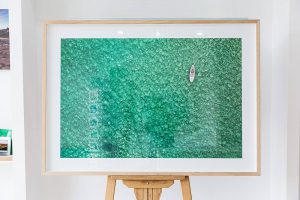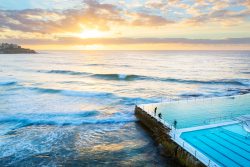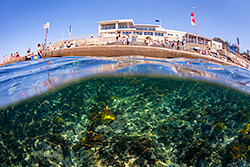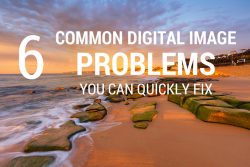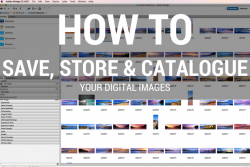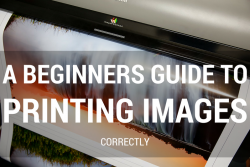Everyone wants to take great photos and buying the right camera and lens is certainly one of the first steps. But with a market flooded with makes and models it is certainly a daunting task to someone new to the photography world and with your hard earned money you want to make the right choice. Over the years of buying my own camera gear and teaching hundreds of people and seeing what they got and hearing their stories and answering their questions I am going to pass onto you my thoughts on how you should go about getting your first digital SLR camera.
** In this article I use Canon images and refer to Canon only because I am familiar with their Camera makes and models and Lenses.
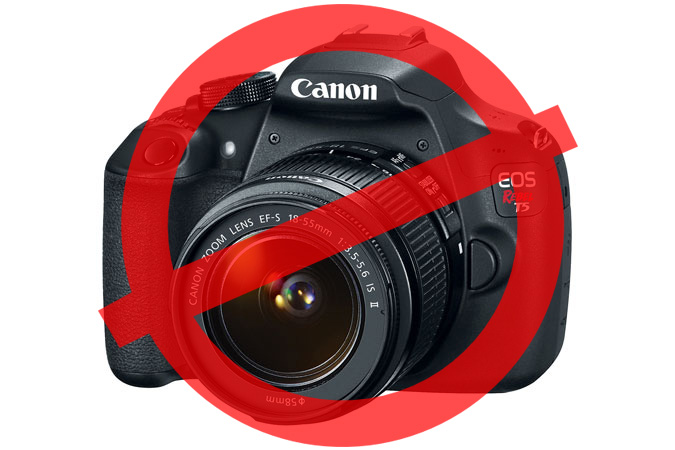
Don't buy an entry level Digital Camera
One of the main reasons why I don’t recommend that you that run off and get an entry level camera is with a bit of effort and dedication to your new interest in photography you will soon out grow your camera in next to no time at all and be wishing you had gotten a better camera. When I say a better camera I mean one that will give you better image quality, a better rear screen quality and more features like images it can capture per second. But image quality is the most important.
To give you an idea listed here on Amazon is the most popular range of digital camera that sell. Any camera under $800 will be an entry level camera. Amazons Top DSLR Sales List
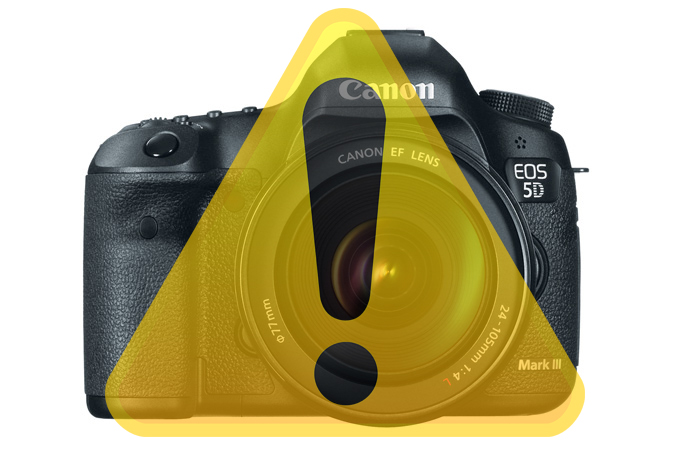
Use Caution if buying a 2nd Hand Digital Camera
Buying a 2nd hand digital camera can be full of problems as you don’t know what has happened to the camera in it’s life time with that owner. Especially a landscape photographer that has been out in all kinds of weather conditions.
The second digital camera I owned was a Canon 1Ds Mark II and I bought that 2nd hand off another photographer for $5500 as it was a very high end camera at that time. On receipt of the camera the sensor was so dirty that the shots were un useable, so off to Canon for a sensor clean $$. Then another two weeks later the shutter in the camera failed, off to Canon again for a new shutter to be installed $$$$$$. Was a nightmare that cost me a lot. I would have been better buying a new camera that was still high end but not that model.
Another example is my own Canon 5D Mk III a year ago I was shooting down at the beach getting wave shots and I accidentally got hit by wave I didn’t expect to be that big and the back of my camera got splashed it was a $1500 repair bill. Now if I was to sell my camera the person buying that wouldn’t know that the camera had salt water damage (even though repaired and cleaned) and if I told them what had happened I bet they wouldn’t buy it, I know I wouldn’t. So your taking a gamble buying second hand electronic equipment.
I would how ever buy a second hand camera that came with a warranty of some kind or if you knew the person selling it and trusted that the gear was looked after well.
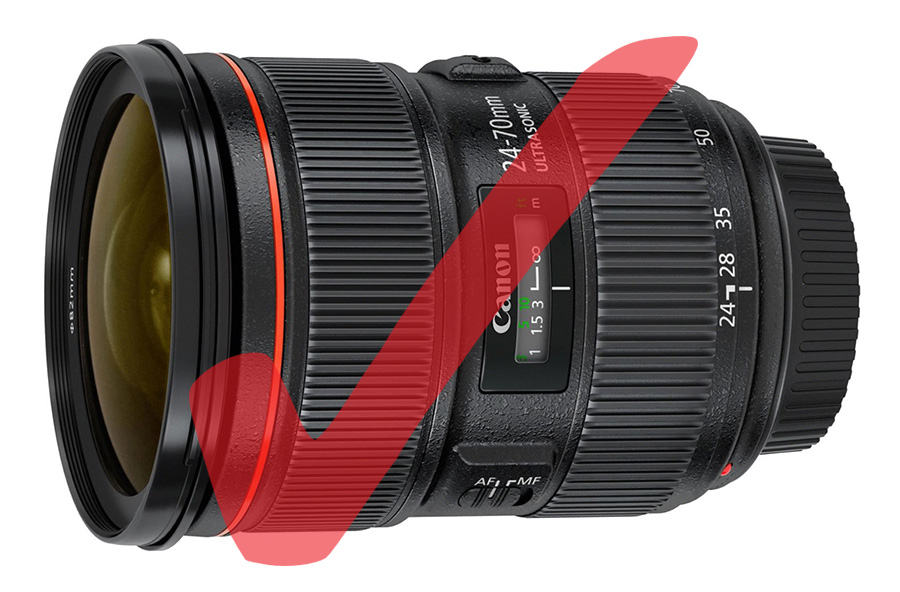
Buy Right the First time... Never Buy Twice
On your journey as a photographer one thing will come clear, camera bodies will come and go but your lenses will be there to stay. I have lenses like the original version of the Canon EF 24-70mm f/2.8L II Lens that I still use to this day. But this lens is $2500 (AUD) and I wouldn’t expect someone starting out to buy this but a great compromise would be the Canon EF 24-70mm f/4.0L
that’s half the price.
Buying a 2nd hand lens is much less risky than buying a 2nd hand digital camera so I would explore this avenue to get a great lens.
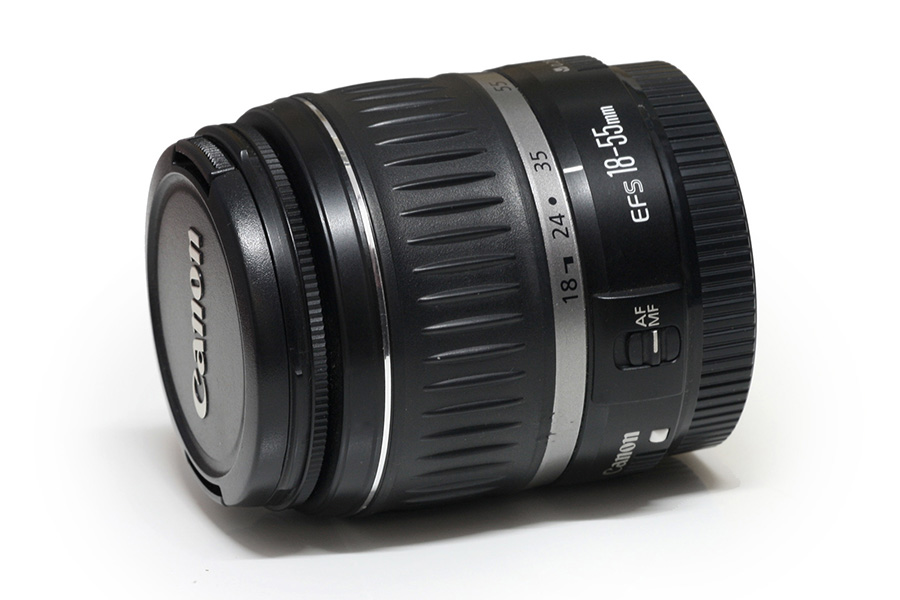
Try to avoid kit lenses
Kit lenses are lenses to get you started, their very beginner and their image quality while acceptable wont be a lens that will serve you for any length of time. If your buying an entry level camera then yes this lens will do. But if your buying anything else then avoid going for a kit lens. From the main players in the industry Canon make the worst kit lenses that are awful to use. Especially the Canon EF-S 18-55mm f/3.5-5.6 Lens makes me cringe just looking at it. On courses I would be helping people with their photography and they would be focused on the scene and even when they adjusted their polariser the front of the lens would move thus changing the focal length and also the focus… so painful.
If your really money conscious when first starting out just throw a few extra dollars at getting a lens that’s a bit better and not a kit lens like this. Even a second hand Canon EF 17-40mm f/4L Lens or similar would be a great start. A good all rounder lens like the Canon EF-S 18-200mm f/3.5-5.6 Lens would be worth a look as well.
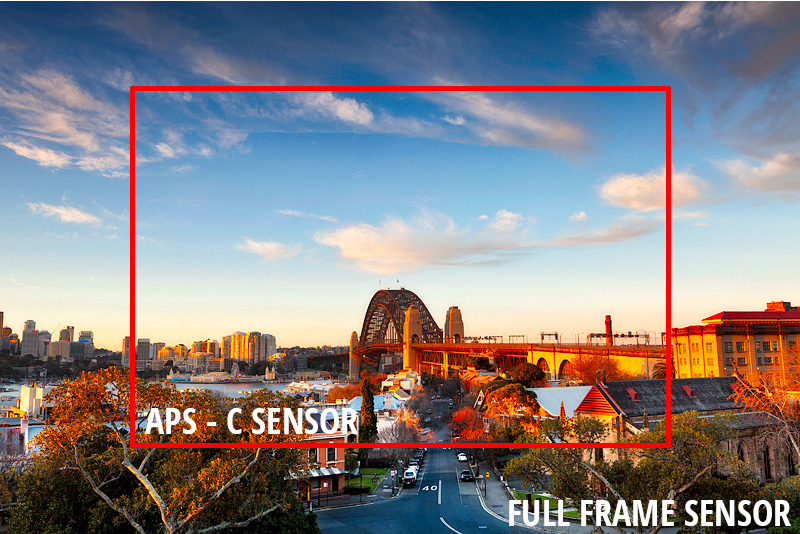
Remember when buying a Digital Lens there are two Types
In this article I have referred to several different lenses to illustrate quality. But I need to mention that depending on what camera you buy can effect the lens purchase your going to make, especially if you have your eye on getting a certain range of camera in the future. What I am referring to are camera bodies that are Full Frame or have a Cropped Sensor. In the above image it illustrates a scene shot with a full frame camera and then in the red boarder what you will see using the same lens and focal length on a camera with a cropped sensor (give or take depending on the model)
To keep it really simple a Canon EF 24-70mm f/2.8L II Lens on a full frame camera @ 24mm is 24mm. On a Canon camera with a APS-C sensor this lens at 24mm will be 38mm. So if your buying a camera body that talks about being a cropped sensor or they say the “APS-C” sensor then you need to realise that all of the Canon pro lenses will not compensate for this. You will need to look at lenses that are an EF-S lens for 24mm to be truly 24mm on your camera as the lens will compensate for this.
Now if you see yourself in the future owning a full frame camera then you might like to start off buying a 17-40mm lens as on a cropped sensor it will be close to 24mm which is great and then when you get your full frame camera you now have a wide angle lens that is 17mm.
If your buying a camera body that is full framed it will usually say “Full Frame” in the description which means that the sensor size is the same size as the old school 35mm film frame. 36 x 24mm.
Know exactly what you want and need
I’m sure everyone has been in a position when they have been a little clueless when shopping and have been talked into buying additional extras that you didn’t need or a higher model that wasn’t required. Photography is one of those genres that you can certainly be taken down the rabbit hole and come out bewildered and penny less. On many courses I have seen poor unsuspecting photography victims who have entered a camera shop to get decked out on their photography journey and they have been taken to the cleaners and have been sold a range specialty filters that know one will or have ever used for decades, tripods that can’t even hold the weight of their cameras, memory cards that under perform and are a terrible brand with slow right speeds, being told that the lens they have is the best (when it is far from it), being told the lens they have is great for landscapes (but it isn’t).
So in saying all this, knowledge is power. Do your research so when you walk into a camera shop to buy you wont get talked into buying items that are not required. With camera shops you need to understand that one week Canon will be the flavor of the month as they offer the seller promotional rebates, so if you go in guess what you will be pushed a Canon system, then the next week it might be Nikon, then Canon again then Sony. This will apply for the lenses your sold, some will have better margins so they will be pushed. It isn’t under handed and your not being sold a bad product, your just not being sold the product that might be right for you. The staff selling you the equipment might not even be photographers, their just sales staff so their advice will be very general and not based on practical knowledge of the item they are selling.
If your buying online then you don’t have the help of anyone other than the research you invest into what you need. But there is a lot of advice out there online (articles like this). I know for myself I was in the market for an underwater housing and a photographer who’s work I respected and wanted to emulate used Aquatech. So guess what I now own an Aquatech housing. For me it was that simple. I did my research on what I needed for the gear I owned and bought it.
Wrapping it Up
To sum things up.
- Always buy the model / lens you want / need for what you want to achieve. Even if it means saving up for a few extra weeks.
- Remember a 2nd hand lens is always a good option, but be very careful buying a 2nd hand camera body.
- Don’t buy thinking short term about your passion in photography, think long term, so invest wisely into your equipment.
- When starting out only buy what you need. Camera, Lens, Tripod, Memory Card. (Leave filters for now).
- Do your research, look at what other people are using that get photos that you admire. If you find a lens our camera body out of your budget search google for the best alternative to it. Take online advice from trusted resources or from people who know what their talking about. You will find people online talking about what lens is best aren’t financially motivated.
- Try to steer clear of kit lenses that come with camera packages, especially entry level. Higher level camera packages will give you a good lens option if your looking for a kit package.
- Stick with the big players Canon, Nikon and Sony when entering the market.

